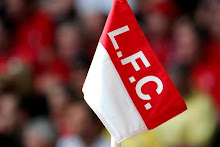
Five years ago, Liverpool Football Club was in a period of transition. With a new manager on board who was determined to bring the best players to Anfield, the powers that be aimed to secure substantial investment from far afield. The issues of management and investment had intertwined earlier that year when business magnate Steve Morgan, who owned a 5% stake in the club, publicly voiced his opinions about several aspects of the club including the position of them manager Gérard Houllier whose carefree spending on heartless mercenaries he believed had no place in the Anfield dugout.
"Bill Shankly, Bob Paisley and Kenny Dalglish were controlled by the board led by John Smith and Peter Robinson, who imposed strict financial controls," he said in May 2004. "That's what I believe should be happening now. I would like to think we can return to the old culture of the club. I remember the days when all 11 players on the pitch would give their everything for the club. Unfortunately, apart from the obvious few, we haven't seen that in recent years. We need people who want to play for Liverpool back in the side, not those who want a huge salary at the end of the month."
Days later, the club entertained the idea of selling a 30% stake in the club to then Thai prime minister Thaksin Shinawatra, who had previously tried to buy shares in Fulham and would enjoy a short-lived spell as owner of Manchester City between 2007 and 2008. This prompted Morgan to table several takeover bids to majority shareholder David Moores but to no avail. His decision to speak so openly about Rafael Benitez's predecessor did not curry favour with the chairman or the Anfield board. Shortly after meeting with chief executive Rick Parry in his native Thailand, talks with Shinawatra were pulled and any plans for new investment were put on ice.
In December 2004 Morgan made another takeover bid as Moores, with the aid of Parry, continued to search for investment into the club. The Garston-born building magnate, whose rags-to-riches tale saw him earn his fortune with Redrow, made a pledge to the club and to the new manager. "Rafael Benitez can have funds and there will be finance to build a new stadium. Please accept my offer," he pleaded with the board. But his offer was declined and so began another fruitless search for investment. Little over a year later, following the club’s successful Champions League victory, a potential buyer was found. Robert Kraft – an American sports tycoon – was the reported buyer and seemed like the ideal candidate to takeover the club, also owning MLS outfit New England Revolution who had since 2002 had been coached by former Reds defender Steve Nicol. Kraft had previously spoken of the admiration he had for the club and his desire to spawn a new Anfield legacy, rivalling the one the club experienced between the 1960s and 1980s. ”Liverpool is a great brand and it's something our family respects a lot,” he said at the time. “We're always interested in opportunities and growing, so you never know what can happen." However no agreement was reached with the Moores family and yet again Parry scoured the financial world for a sugar daddy to help Liverpool compete in the transfer market with the likes of Manchester United and Chelsea, both of whom had incurred wealthy new owners. Kraft later admitted that the two stumbling blocks in buying the club were the inability to place a salary cap on players as well as the uncertainty over building the proposed new stadium in Stanley Park.
In late 2006, Moores was reported to be in talks with Dubai International Capital – the investment arm for the government of Dubai and its ruling family – over a deal to sell the chairman’s majority stake in the Reds. DIC’s Sameer al-Ansari, a self-confessed Liverpool fan, was at Anfield to witness the 4-0 thrashing of Fulham in the December of that year. A lot of was made of the proposed takeover by the group owned by Dubai’s ruler Sheik Mohammed bin Rashid Al Maktoum however by March 2007 all talk was shelved after DIC tried to force Moores’ hand whilst he considered a rival offer from American duo George Gillett and Tom Hicks. Since that takeover, Dubai have been heavily linked with the club as Gillett and Hicks struggle to finance the club’s new stadium as well as service the debts the club incurred as part of their refinancing deal in January 2008.
Steve Morgan meanwhile sits pretty as owner of Wolverhampton Wanderers, having bought the club from Sir Jack Hayward for a token fee of £10. Hayward made the grand gesture on the proviso that Morgan invested a minimum of £30million into the Midlands club which he has long regarded as his ‘second team’. Less than two years later Wolves were crowned winners of the Championship, earning them a place in this season’s Premiership. Morgan will return to Anfield on Boxing Day to see his side take on his boyhood club safe in the knowledge that, unlike his opposite number, he has not saddled Wolves with debts on anything close to the scale that Gillett and Hicks have placed on LFC. Whilst a yo-yoing Championship club and a top four Premiership side are two completely different prospects altogether, Morgan may privately feel that his rejected takeover was a blessing in disguise given how things have turned out at Anfield off the pitch.

